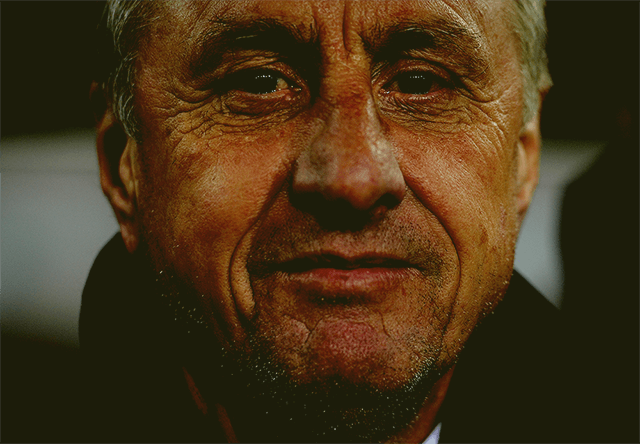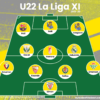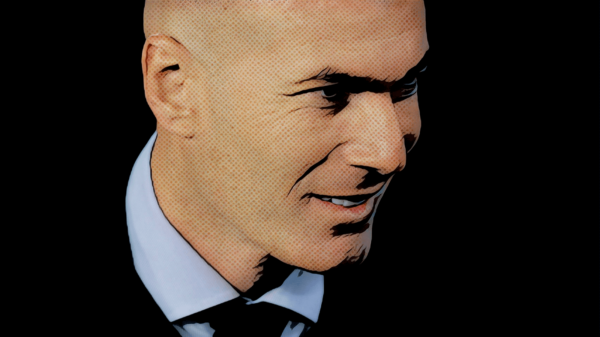
Dhruv Shekhar writes about Johan Cruyff, and the impact the Dutchman had on Catalonia; on the field, and off it.

24th March 2016: The day Johan Cruyff passed away. A Dutch Footballing great and a national icon, there were legions of fans who mourned the loss of the Co-father of The Total Footballing Tradition (Rinus Michels – his coach at Ajax and the Dutch National team being the other luminary). A style so aesthetically appeasing that it created a footballing cult by itself.
However it was not just the Dutch who mourned this loss, a little further south of The Netherlands, his loss was mourned equally in the Spanish Region of Catalonia. A little research would lead most to find that as understandable, considering Cruyff’s time spent in FC Barcelona.First as a player during the 70’s and then as the coach of the eponymously titled “Dream Team” of the 1990’s.
Cruyff lifted a combined total of 13 Trophies spread across these two spells. Along with that, instituting the Football Cathedral of La Masia which has spawned the likes of Xavi, Iniesta and Lionel Messi, seems to provide strong basis for his deified status in Barcelona. But is this reason enough for Cruyff’s haloed status or is there more than meets the eye? It is to explore this very question that I write this piece.
The year was 1973, Real Madrid C.F. was after one of Europe’s finest talents in the form of Johan Cruyff. As was the case, more often than not they would always get their man, which appeared to be the same this time round as well, with his parent club Ajax keen on selling him. It was only Cruyff’s sustained 11th hour intervention that prevented this deal from going through. An intelligible & ideological figure (as one sees even later on in his career), Cruyff detested the idea of moving to a region in Spain which was the doyen of the then Dictatorial regime of General Franco.
Instead he pushed for a move to the club at the heart of the Catalonian region – FC Barcelona for a world record sum of 100,000,000 pesetas. A beautiful and culturally enriched city even back then, the Catalan Capital of Barcelona had in recent years cowed to down to the Franco regime. With discrimination rife in all aspects of life, bans imposed on the Catalan Flag and language- an independent sense of Catalonian identity was certainly being placed on the periphery by the state imposed Castilian identity.
On the pitch too, the once indomitable force that was FC Barcelona was going through a torrid period. Not having won the Spanish league for the last 14years, there was sense of inferiority that had permeated amongst the Cules’. Thus the coming of Johan Cruyff was taken in many quarters as the coming in of a messiah who would make them unbeatable. And that is exactly what he did. The 1973-74 Spanish La Liga title was Barcelona’s – the most emblematic night of this new found resurgence was on February 17th .1974. Madrid were given a 5-0 thrashing in the El Classico, it was not just the Manita (Spanish term for little hand in reference to the score line) thrashing that made this victory great. It was a new found sense of belief that the Catalan identity could be pressured down but never crushed.
It could be argued that this city had previously developed an inferiority complex of sorts owing to the Francoist Era Policies. An aspect which affected the aspirations, habits and most potently the ambition of the people. However this was one night when the shackles were broken, Cruyff and his boys ran havoc against the Madristas. That match for this very reason lives on fondly in the minds of all concerned, ensuring that Cruyff was elevated from the status of football phenomenon to that of a popular culture phenomenon.
In the time that followed, Johan’s son being named Jordi was another matter that endeared him to the Catalans. Born in Amsterdam, in the week prior to the aforementioned Madrid game he was named after the Patron saint of the Region of Catalonia. This was another attempt on his part to show his dissent towards the ruling regime. The Spanish authorities initially rejected the name owing to its overt Catalan nature. However the technicality of Jordi having been born in The Netherlands, resulted in them having to give in, making him the first legal Jordi in Barcelona in decades.
In the years that followed Johan left the club to try out the new footballing outposts across the globe. Only for him to return in the Capacity of a manager and coach and bring in another era of Sporting Revolution in the new democratic Spain. While his second tenure at Barcelona ended ominously in 1996, he never left the city and the city never left him. Often present as a guest writer amongst the Barcelona dailies such as Sport, his last coaching position too was with Catalonian National Football team. While not being a recognized FIFA entity, it provides a glimpse into the idea as to how emotionally connected this man was with that region.
However it was his first foray with club which is very well reflective of how football or rather FC Barcelona in this case served as a line of resistance against the overarching socio-economic oppressive forces, with Johan being the “Knight” leading the charge, brandishing goals, tricks and ideas along this struggle.
Written by Dhruv Shekhar



























































